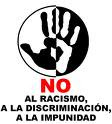
The UBS memo was blunt: the “Swiss solution” could help affluent Americans.
That message, sent to the bank’s executives in July 2004, referred to a UBS plan to help rich customers evade taxes by hiding money in offshore havens like the Bahamas.
The memo, along with dozens of e-mail messages like it, were disclosed on Thursday in a blistering court document filed by the Justice Department, which sought to compel UBS, based in Switzerland, to divulge the identities of 52,000 Americans whom the authorities suspect of using secret offshore accounts at the bank to dodge taxes.
The move opened a new, unexpected front against UBS, which a day earlier had agreed to pay $780 million to settle claims that it defrauded the Internal Revenue Service, and against Switzerland’s long tradition of banking secrecy.
The number of clients the authorities are seeking to identify is far higher than previously believed, raising new questions about the scale of UBS’s activities and the number of Americans who could be snared in the investigation. Federal authorities initially focused on 19,000 accounts, and UBS turned over about 250 names on Wednesday. That figure now seems certain to grow.
The court document alone dealt a stinging blow to UBS, whose corps of private bankers discreetly tend the fortunes of billionaires and multimillionaires. Filed in a Miami court, the papers provide a rare inside look at the secretive ways of Swiss banking.
The 2004 memorandum, for instance, described how UBS created hundreds of “dummy” offshore corporations where its clients could hide money from the I.R.S. An e-mail message sent that year captured some of the coded language used by UBS bankers. In their world, “one nut” meant $250,000, while “one swan” meant $1 million. Colors were used to designate certain currencies. Orange, for example, represented the euro; blue, the British pound. Several messages described UBS actively referring clients to outside lawyers and accountants in Switzerland and elsewhere who set up secret accounts for them.
In a brief interview on Thursday, one UBS client said the bank also provided wealthy clients with electronic devices with coded computer chips that enabled them to gain access to their accounts and transfer money secretly. The passwords changed each time the accounts were accessed.
In the criminal investigation that led to this week’s settlement, the Justice Department had zeroed in on about 19,000 wealthy Americans. Those UBS customers had a combined $20 billion in assets at the bank, and may have evaded $300 million a year in federal taxes through UBS’s undeclared offshore private banking services.
But the I.R.S. has been conducting a parallel investigation, and on Thursday the Justice Department asked a federal judge to require UBS to disclose to the I.R.S. the identities and records of the 52,000 clients. In the past, UBS has suggested that the 19,000 accounts under investigation, which it is now closing, were the extent of its undeclared offshore banking services.
UBS, the world’s largest private bank, said it would vigorously challenge the efforts.
As part of Wednesday’s settlement, the Justice Department received the names and bank records of about 250 wealthy American clients of UBS. According to people briefed on the matter, the department was preparing to indict several on charges of offshore tax evasion. A Florida federal judge is expected to approve the enforcement request in three to six months, which allows UBS time to appeal and ask for extensions.
If UBS does not comply with the approved summons, it could be in default of its deferred prosecution agreement, potentially opening itself and its senior executives to indictment.
Samuel Buell, who helped to prosecute Enron and now teaches criminal and securities law at Washington University in St. Louis, said that UBS’s declaration that it would fight the government’s latest efforts suggested the bank was caught in a bind. Federal prosecutors want it to lift the veil of Swiss banking secrecy, but Swiss financial privacy laws punish the disclosure of client names.
February 20, 2009
By LYNNLEY BROWNING
Fuentes : NY Times



















No hay comentarios:
Publicar un comentario